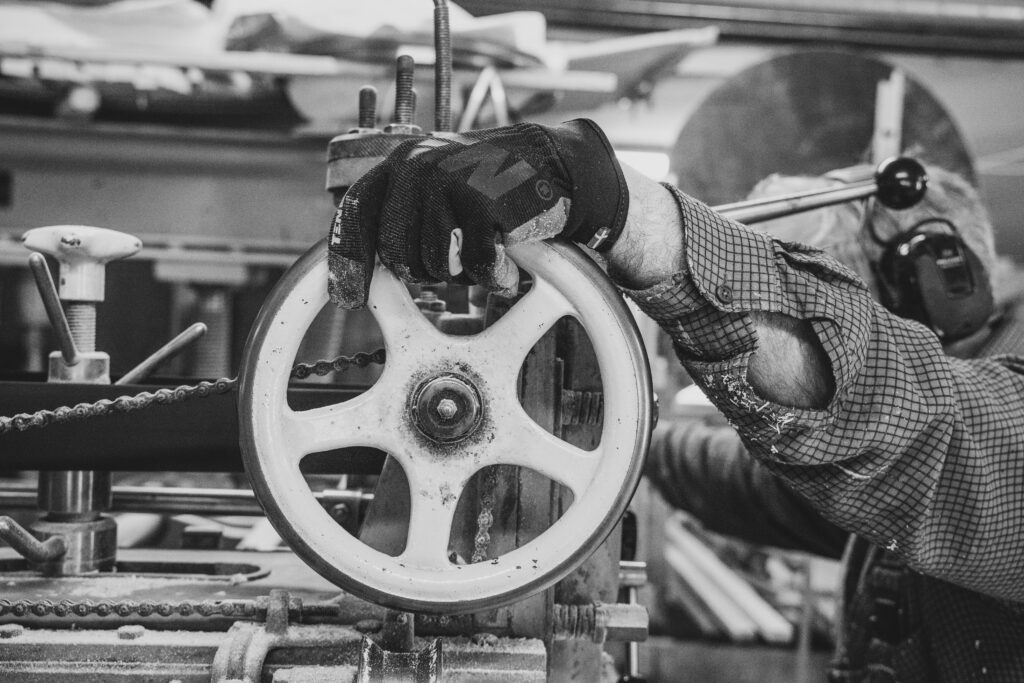In manufacturing, productivity and profitability often hinge on operational reliability. Maintenance, Repair, and Operations (MRO) is the umbrella term for the processes, consumables, spare parts, and services that keep facilities running. While production output captures the spotlight, a manufacturer’s ability to meet quality, safety, and compliance standards depends equally on how well its MRO program is managed.
For contract testing and third-party laboratories, MRO is not simply a behind-the-scenes activity. It represents a critical area where testing, inspection, and calibration (TIC) services intersect with manufacturing operations. From ensuring the quality of replacement parts to verifying compliance of cleaning agents and calibration services, labs directly contribute to a manufacturer’s ability to meet regulatory obligations and deliver consistent products.
Defining MRO in Manufacturing
MRO refers to all supplies, services, and activities that ensure machinery, equipment, and facilities remain functional. It spans three primary areas:
- Maintenance – Preventive and predictive work designed to extend equipment life and minimize unplanned downtime.
- Repair – Corrective measures taken after a failure occurs, including the replacement of faulty components.
- Operations – Routine use of consumables, spare parts, and support services necessary for daily production.
Unlike direct materials, which become part of a finished product, MRO items support the manufacturing process itself.
Categories of MRO Supplies and Services
MRO is broad and covers multiple categories, each with testing and compliance implications:
| MRO Category | Examples | Relevant Testing & TIC Services |
|---|---|---|
| Industrial Equipment & Spare Parts | Bearings, motors, pumps, fasteners, valves | Mechanical testing (tensile, fatigue, hardness), chemical composition analysis, failure analysis, supplier quality audits |
| Consumables & Safety Products | PPE (gloves, masks, eyewear), lubricants, adhesives, cleaning agents | ASTM/ANSI compliance testing, chemical safety testing, biodegradability studies, efficacy validation, counterfeit detection |
| Calibration & Instrument Services | Gauges, torque wrenches, balances, pipettes, sensors | ISO/IEC 17025 calibration, traceability verification (NIST), precision measurement audits, uncertainty analysis |
| Facilities & Infrastructure Support | HVAC systems, lighting, electrical, water systems | Air quality testing (ASHRAE, OSHA), water purity analysis, electrical safety inspections, environmental compliance testing |
| Environmental & Waste Management | Waste oils, solvents, effluents, solid waste | EPA compliance testing, hazardous waste characterization, wastewater discharge analysis, emissions monitoring |
| Digital & Predictive Maintenance Tools | IoT sensors, monitoring software, predictive analytics platforms | Data validation, cybersecurity audits, accuracy testing of sensor outputs, reliability verification |
| Supplier & Supply Chain Assurance | Third-party vendors for spare parts, chemicals, or calibration services | Supplier audits, conformity assessment, CoA verification, cross-border compliance (REACH, RoHS, ISO standards) |
This matrix illustrates how MRO items connect directly with laboratory services, underlining the value of TIC providers in ensuring quality, compliance, and operational continuity.
Why MRO Testing Is Essential
1. Regulatory Compliance
Regulators such as the US FDA, EPA, and OSHA mandate the safe and compliant use of chemicals, consumables, and equipment. Globally, frameworks like EU REACH, RoHS, and ISO 45001 guide material safety and occupational health. Independent laboratories ensure compliance through routine product and environmental testing.
2. Operational Continuity
Downtime in manufacturing costs industries billions annually. Properly tested spare parts and predictive maintenance programs reduce unplanned outages and extend equipment life.
3. Safety Assurance
Substandard or counterfeit MRO products—from low-quality PPE to unverified lubricants—create safety hazards. Testing mitigates these risks by confirming product quality and authenticity.
4. Data Integrity and Traceability
Calibrated instruments generate data that informs product specifications, audits, and certifications. Third-party labs provide traceable results that satisfy ISO/IEC 17025 and regulatory audit requirements.
The Role of Third-Party Labs in Supporting MRO
Contract laboratories and service providers are uniquely positioned to strengthen manufacturing MRO programs:
- Material and product testing: Mechanical and chemical analysis of spare parts, coatings, adhesives, and lubricants.
- Environmental monitoring: Testing of workplace air, wastewater, and effluents linked to MRO products.
- Calibration services: NIST-traceable calibration of pressure gauges, pipettes, scales, and analytical instruments.
- Failure analysis: Root-cause investigation of part or equipment failure to prevent recurrence.
- Supplier verification: Independent audits and inspections of MRO supply chains to confirm quality and reduce counterfeit risk.
Emerging Trends in MRO and Testing
- Predictive Maintenance and IoT Integration
Sensors and smart devices feed real-time data into predictive analytics, reducing the need for reactive repairs. Labs provide data verification and ensure sensor accuracy. - Sustainability in MRO
Manufacturers are shifting toward biodegradable lubricants, eco-friendly solvents, and energy-efficient consumables. Independent testing validates environmental claims and compliance with sustainability certifications. - Digital Supply Chain Management
Electronic procurement platforms increasingly require suppliers to provide TIC-verified certificates of analysis (CoAs) or conformity. - Standardization and Global Compliance
With global supply chains, harmonization of standards, like ISO 55000 (Asset Management) and ISO 14224 (Reliability Data Collection), is driving cross-border MRO testing requirements.
MRO as a Strategic Enabler
Manufacturing MRO has evolved from a cost-driven necessity to a strategic enabler of quality, compliance, and reliability. By ensuring that every spare part, lubricant, calibration service, and safety product meets stringent standards, contract laboratories provide the independent verification manufacturers rely on.
For the TIC sector, supporting MRO means more than routine testing: It means enabling manufacturers to stay productive, compliant, and prepared for the future of a smarter, faster, and data-driven Industry 4.0.
If you’re an MRO testing provider, register your lab with our improved lab directory for better visibility and to expand your client base.
Looking to outsource MRO testing to expert labs around you? Submit a lab request to our marketplace platform and connect with potential lab partners quickly and securely.
This content includes text that has been generated with the assistance of AI. Contract Laboratory encourages the use of new tools and technologies that enhance our editorial process. Our full editorial policy can be found here.

